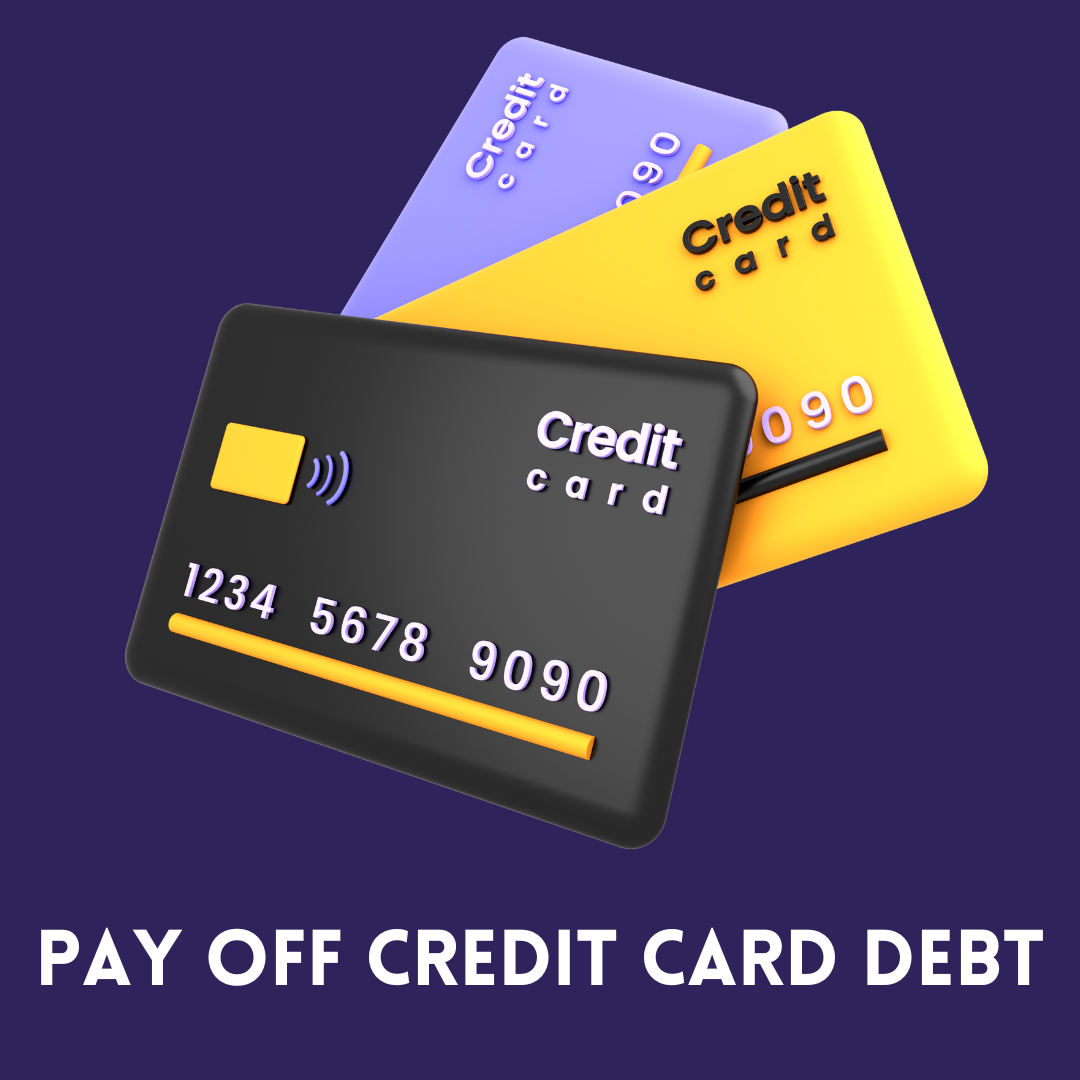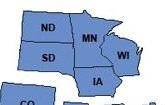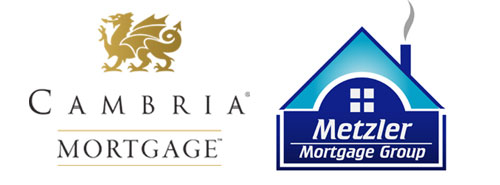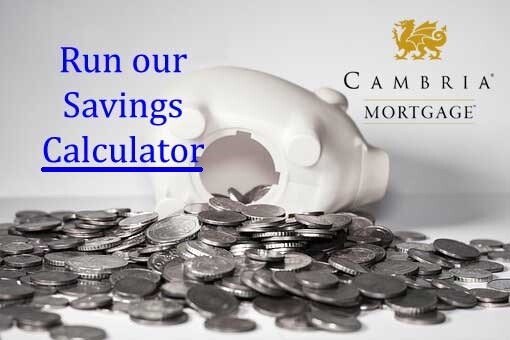-
Share via:
(651) 552-3681
Home Purchase - Home Refinance
Serving MN WI IA ND SD CO FL
- Home
- Reviews
- Apply
- Quick Qualify
- Rates & Costs
- Loan Programs
- Bad Credit Loans
- Buying a House
- Commercial / Apartment
- Doctor Loans
- FHA Loans
- Down Payment Assistance
- First Time Home Buyer
- HomeReady
- Investor DSCR Loans
- Luxury home financing
- Jumbo Loans
- Loans for Self Employed
- New Construction Loans
- No Down Payment Loans
- No Doc / Non-QM
- Refinancing
- Contract for Deed Refi
- Renovation Loans
- USDA Loans
- VA Loans
- Client Resources
- After BK or Foreclosure
- The Home Loan Process
- Daily Mortgage News
- Your credit score
- Student loans
- Homebuyer Classes
- Mortgage FAQ
- Glossary of Mortgage Terms
- Use a Bank or Broker?
- Fixed or ARM
- Home Buyers Guide
- Mortgage Rate Locks
- Long Term Rate Locks
- Mortgage Loan Limits
- No Closing Cost Loans
- Get a Second Opinion
- Tips for a smooth closing
- Top Mortgage Mistakes
- Foreclosures / Short Sales
- How to buy foreclosures
- Well and Septic
- Beware Predatory Lenders
- About
- Blog
- My Acct
Navigation- Home
- Reviews
- Apply
- Quick Qualify
- Rates & Costs
- Loan Programs
- Bad Credit Loans
- Buying a House
- Commercial / Apartment
- Doctor Loans
- FHA Loans
- Down Payment Assistance
- First Time Home Buyer
- HomeReady
- Investor DSCR Loans
- Luxury home financing
- Jumbo Loans
- Loans for Self Employed
- New Construction Loans
- No Down Payment Loans
- No Doc / Non-QM
- Refinancing
- Contract for Deed Refi
- Renovation Loans
- USDA Loans
- VA Loans
- Client Resources
- After BK or Foreclosure
- The Home Loan Process
- Daily Mortgage News
- Your credit score
- Student loans
- Homebuyer Classes
- Mortgage FAQ
- Glossary of Mortgage Terms
- Use a Bank or Broker?
- Fixed or ARM
- Home Buyers Guide
- Mortgage Rate Locks
- Long Term Rate Locks
- Mortgage Loan Limits
- No Closing Cost Loans
- Get a Second Opinion
- Tips for a smooth closing
- Top Mortgage Mistakes
- Foreclosures / Short Sales
- How to buy foreclosures
- Well and Septic
- Beware Predatory Lenders
- About
- Blog
- My Acct
Mortgage Refinance - When and Why
There are a few main reasons to refinance your current home loan:
- Lower your monthly payment
- Shorten the loans term (15-yr, 20-yr). A shorter term saves thousands in interest
- Stretch the loan back out to 30-years to lower your monthly payment
- Get cash out for home improvements, debt consolidation, etc.
- Remove PMI (private mortgage insurance)
We can help you with all your home refinancing loans. Plus you can quickly apply from the comfort of your home! Apply online today - Start saving money next month!
Refinance now and find out how low your rate can be! Get historically awesome low interest rates, award-winning customer service, and close your loan faster than most lenders – lock in today!
Rate and Term Refinance and Cash Out Refinance
There are two types of refinance loans to get you a better mortgage.
Rate and Term Refinance is when you are just refinancing and paying off your existing mortgage loan. You are not taking out any additional money, and you are not combining any existing second mortgages into the new loan. You ARE allowed to roll into the new loan any closing costs.
A Cash Out Refinance is when you are getting a new loan that pays off your existing loan AND are adding any additional money to the existing loan amount. For example, you currently owe $100,000, and the new loan amount will be $200,000. This also applies if you currently don't owe anything on the home.
Cash out refinance is also when you may be combining an existing first mortgage with an existing 2nd mortgage, commonly called a home equity line of credit. For example you currently owe $100,000 on a first mortgage, and $50,000 on a second mortgage, and your new refinance loan would be $150,000, paying off both existing loan.
Pay off credit card debt

Paying off your credit card debt can lift a huge burden off of you. Let us help you navigate that successfully
There are many options, and we will educate you on all of them
Mortgage Refinance Interest Rates
Many different factors determine your new mortgage rate, including credit scores, loan program, purchase, refinance, property type, investment or owner occupied and more. Once we have that information, then you also have personal choices to make, including buying down the interest rate with discount points, no lender fee, reduced lender fee, no loan origination fee, and more.
Yikes. No wonder shopping for a home loan drives people crazy.
Refinance Rates Are Higher
The interest rates on rate and term refinances are slightly higher than interest rates on a purchase loan. Cash our refinance rates, when you take out more money than you currently owe, are another tick higher thn rate and term refinance rates.
Wonder what rate you qualify for? Simple complete our Quick Quote form, or better yet, a full application.
Refinancing Is A Whole New Loan
Refinancing your current loan does require a complete full new loan application, along with in most cases, all the same standard supporting documents like when you bough the home (pay stubs, W2's, bank statements). Some streamlined refinance options, like an FHA streamline, or a VA streamline do have reduced documentation, and may not require an appraisal.YES, You Have Closing Costs All Over Again
Just like any other mortgage loan, a refinance loan does have closing costs again. Generally you'll have all the same closing costs as a purchase loan, except for one small reduction in title insurance, as you get a 'reissue' credit. In some refinances, you may not have an appraisal, saving the cost of the appraisal.
Click here to get an idea of what closing costs might be
All lenders have the closing costs, so don't let them fool you. As you can choose to pay closing costs on your refinance multiple ways, terminology like no closing costs, and no lender fees can be very misleading. You pay, you always pay. How would you like to pay?
ROLL IN Closing costs
The most common way to cover closing costs on a refinance is the lender simply rolls the cost into your new loan amount. For example you owe $200,000, and closing costs are $4,500. Your new loan will be $204,500..
Lender Credits, No Origination Fee, or No Closing Cost Loans
Another common way to pay closing costs is with lender credits to reduce the costs. Here the lender reduces your closing costs from just a little by increasing the interest rate a little, to even completely eliminating your closing costs with a much larger interest rate increase.
While no one likes closing costs added to their what the ow, and no one likes a higher interest rate, the costs need to be paid, and you will always be the one paying them. Click here to learn more on no closing cost loans.
Many lenders advertise this as No Origination fee, or no closing cost loans. The reality is it works the same way at all lenders. If you are not paying any closing costs, or there is no loan origination, you ARE paying for those costs in a higher interest rate.
You have many choices when refinancing your mortgage! Don’t worry, we’ll match you to the perfect mortgage to fit your needs.
Here are some of our most popular refinance options:
- FHA Streamline refinance
- VA Streamline Refinance
- Cash Out Refinance (Debt Consolidation Refinance)
- Switch from an adjustable mortgage to a fixed rate loan
- Earn more money on investment properties with lower payments
Should I Refinance?

The first rule in refinancing your home is that there are no rules. You should refinance if it makes sense for you.
Many people still think the "Rule Of Thumb" is that that if you could lower your interest rate by 2% or more then you should refinance; Depending on your situation, it may make sense for you to refinance even if you can lower your rate by only 1/2%.
It's time to seriously think about refinancing your current mortgage, especially if your interest rate is 1.0% or higher above the going rate. Rates are still great, and are the lowest they have been in years.
Refinancing lets homeowners reduce their monthly payment, slash thousands of dollars off the total cost of the loan, and even arrange "cash-out" refinancing if they want to pocket some extra money to be used for any purpose. Buy a car, pay off a car, credit cards, student loans, whatever! It makes sense to refinance if you can recover your costs and make a fair return on your investment before you plan to sell your home or pay off your mortgage. We can help you calculate what your refinance break-even point is.
Many times, the refinance savings may be very obvious. For example, the you will save over $15,000 over 48 months.
A more typical case is one where there is a closing cost of, say $5,000, and a saving of $150 a month with the new loan. If you can get your cost back within three years, you are going to be in the house at least that long, and have lower payments thereafter, then refinancing definitely makes sense for you.
I regularly see these situations that call for refinancing
- If you have a fixed rate loan and can refinance into a similar term loan at a lower rate, you should refinance. From my perspective: if I can wave my hands at your 30 year fixed rate mortgage and lower the interest rate, then you are foolish not to do it.Some people say: "Yes, but I have been paying on my 30 year loan for 5 years and you want to replace it with another 30 year loan. This is going to cost me more in the long run". This is not correct. You can, in this situation, still pay the loan off in the same 25 years and be making a lower payment on your new loan than your old one. We will calculate the payment necessary to pay it off in 25 years. Plus many times, with the lower rate, and lower payment, although you may go back to a 30 year term, your "total" cost over the life of the loan may still save you money.
- You took out a large Home Equity loan that just keeps going up and up and up.
- You have a 30 year loan, with over 20 years left. Many times we are able to refinance these loans into 15 year terms while leaving the payment very near your 30 year payment. This is an obvious no-brainer, as the amount of money saved typically is in excess of $80,000, plus shaves YEARS off your loan. This is also the most frequent reasons people refinance.
- You would like to pay your loan off as fast as possible
- You have an Adjustable Rate Mortgage that is about to increase in rate but you are not pleased with where fixed rate mortgages are. You should look at a 1 year Treasury ARM and see if you can keep that same index and margin and "roll back" the rate for a year. This is a "no risk' proposition which in essence this gives you a break for exactly 1 year. During this time you should stay in touch with your lender to decide what to do during that year. I do this for a large number of my customers. I also regularly update my customers who have ARM's.
- You have an adjustable (ARM) and your nerves can't take it any more. You simply want the certainty of a fixed rate loan. Here the key is to recognize that fixed rates are "bouncy" and you want to lock your rate at appropriate time. This is 50% skill, 50% luck.
- You have a "balloon loan" that needs to be refinanced. Here, you need to discuss your situation with us. You may want fixed. You may want adjustable. The correct choice of loan depends on the market and most importantly, on your situation.
- You need "cash-out". You may want an equity second or a new first. This depends on the relative size of your first and the cash out. Equity lines issued by direct lenders have low cost but high rate. You again have to discuss your exact situation with us, as we may have some costs, but a better rate.
- You currently have a first and second mortgage. Banks love giving people second mortgages. Unfortunately, many of those people would have been much better off getting a new first mortgage instead. Lot's of people THINK a second would be better for them because their first (for example) might only have 18 years left. I regularly refinance people out of a first & second mortgage into a new first mortgage which saves them $100's each month while still paying off their loan in the time frame they want. Call today. I'll analyze your situation to see if a refinance makes sense for you.
- You took out a 80/20 loan to purchase your home, and now both loans are adjusting. Switching to one low fixed rate loan to stop the ever increasing payments.
WHAT NOT TO DO WHEN REFINANCING YOUR HOME
There are a lot of things "not to do". I will point out only the 3 most common mistakes I see people make.
Setting an unrealistic goal. I always get inquiries from people who say something like, "I have a 30 year fixed rate loan at 5.875% and I will refinance ONLY when rates get to 4.0% with no closing costs". Sometimes I call people back and say, "Why 4%? why not 3% or 2%? They say, "Well rates are not going to go that low". Right and they are unlikely to go to 4% with no closing costs also ("no closing cost" loans typically cost anywhere from 1/2% to 1% higher than the going interest rate)
You should first succumb to the fact that once you can lower your rate with no out of pocket expense, you should probably refinance. Don't draw unrealistic interest rate lines in the sand. They get blown away too easily.
The "Once rates start dropping, they are going to continue to drop and I'm smart and I am going to lock when rates hit the bottom of the market" syndrome is another major problem. It is very hard to guess the interest-rate cycle, and pretty hard to catch the bottom. Remember that interest rates tend to go down slowly, but can rise fairly quickly.
"If the rate goes down just another 1/8th percent, then I'll lock" This one just kills me! I see people lose all the time over this theory. If your current rate is 5.875% and today's rate is 4.50%. LOCK & CLOSE! Most people have what I call "interest rate block". They get a rate stuck in their head, and that is the rate they want, no matter what. Most people fail to realize (and most loan officers fail to show them), that the difference on the average loan over 1/8th a percent is usually less than $15 per month. If you can save $150 per month on your loan at today's rate, why gamble? Why hold out for another $15 when the odds are against you?
Don't get piggy. Work with us. Set a goal and lock when it gets there. Are we going to hit the bottom? Probably not. Are we going to save you money? Yes. If you can save money with no out of pocket costs, than you have nothing to lose. If you want to gamble go to Las Vegas. It's a heck of a lot more fun. Apply Now
OTHER TIPS AND TRICKS TO SAVING MONEY WHEN REFINANCING
The purpose of most refinance loans is simply to save money. The goal is to minimize your expense over the life of the loan or to minimize your monthly payment in the near future.
If you can swing it, don't roll every cost of refinancing into your new loan. Most people escrow for taxes and insurance. If you do, your current lender must give you escrow refund within 30 days of paying off their loan. Your new lender, be it us or someone else, must take the equivalent amount of money (or more) at closing to start the new escrow account.
Remember that you always have no payment due the first month after closing. For example, if you close June 20th, your first new payment is August 1st.
Knowing this, paying some of your closing costs out-of-pocket will save you even more money in the long run. Why roll in $4000 in closing costs, when you really only need to roll in $2000 ($1000 escrow refund + $1000 missed payment = $2000). Paying that $2000 over 30 years doesn't make sense if you don't have too.
On the other hand, some people love the fact that they didn't pay anything out of pocket to refinance, got a nice escrow refund check, then got to miss a mortgage payment. They use the 'extra' money to pay bills, go on vacation, etc.
BEWARE THE SKIP TWO PAYMENTS LIE
Many slimy lenders will tell you that you get to skip two payments if you refinance with them. Sure, if you don't make this months payment, and you automatically don't have a payment due the month after closing, it can feel like you 'skipped" two payments.
The reality is that because you didn't make the current month payment when due, the amount due to pay off the existing loan at closing will be higher, and you'll have a late payment fee. You also risk having a late payment on your credit report if the loan doesn't get paid off in the month the payment was due. So you didn't really save anything, you just juggle the payment from today to the new loan.
You also really are not skipping the second month either, as mortgage interest is paid in arrears. This simply means when you pay of July 1st, you are paying June's interest.
Pro Tip: ALWAYS MAKE YOUR MORTGAGE PAYMENT WHEN DUE, and run away from lenders making the skip two payments claim!
Using Your Current Lender is Usually a Mistake
Shopping for a home loan is confusing. No matter what we're looking for -- from cars to refrigerators' -- there's a built-in element of confusion. Why? Lack of knowledge. An unfortunate rule of thumb is that the less we know about something we need to buy, the more we can expect to pay for it.
Your current lender sounds like a logical choice to refinance. They take advantage of you because they know that many people incorrectly assume because they have your current loan, that somehow they can do it quicker, cheaper, and faster.
You couldn't be more wrong.
There is no short cut to refinance with your current lender. They still need to do everything over, get an appraisal in most cases, and collect the same supporting documents as anyone else. It still needs to go through underwriting, there still are closing costs, title companies, and everything else. Interest rates are based on the mortgage backed securities bond market, and they can't magically give you a better deal.
As a matter of fact, because most people only call the existing lender, you almost never get the most competitive rates - because they don't have to. You just assumed they were good.
They add to this myth because the person on the phone says things like you'll get a Preferred Customer, or Existing Customer Discount. Sounds great, but usually it is meaningless.
Pro Tip: Call your local non-bank lender, or the broker who gave you the original loan if you want the best deal, or even search the term mortgage broker near me.
Refinancing - Apply Online
THE BOTTOM LINE
Remember, the first rule is that there are no rules. You should refinance if it makes sense for you. Every person & situation is different. What makes sense for one family, may not make sense for you. Call me today to discuss your wants, needs, and goals.
Call a Cambria Mortgage loan expert at (651) 552-3681, and together we'll determine if refinancing makes sense for YOU.

Click here for more information on the actual loan process.
Click here for 10 Tips to a Smooth Closing
Click here for 10 Mistakes to Avoid
** EXPERIENCE MATTERS **
Top rated mortgage lender locally and nationally, year after year... This is because clients agree - Experienced Loan Officers with mortgage interest rates you can brag about and amazing service clearly sets us apart from the big banks and online lenders.
Address
33 Wentworth Ave E, St Paul, MN 55118
Contact
Main (651) 552-3681
Joe@JoeMetzler.com
Cell/Text (651) 705-6261We also call from
(651) 615-7545
(952) 486-6135License Info
Cambria Mortgage
NMLS# 322798 Branch:1888858Joe Metzler Loan Officer
NMLS# 274132. License MN #MLO-274132, WI #11418. SD #MLO.03095, ND #NDMLO274132, IA #36175, FL #LO119389, CO #100536785Privacy Policies | Disclaimers | Disclosures | Terms of Use | DMCA Notice | ADA Notice |

Equal Housing Lender. The Joe Metzler Team at Cambria Mortgage lends in Minnesota, Wisconsin, Iowa, North Dakota, South Dakota, Colorado, and Florida only. This is not an offer to lend or to extend credit, nor is this a guaranty of loan approval or commitment to lend. Information here can become out of date, and may no longer be accurate. Products and interest rates are subject to change at any time due to changing market conditions. Not all programs available in all states. Actual rates available to you may vary based upon a number of factors. Consumers must independently verify the accuracy and currency of available mortgage programs. All loan approvals are subject to the borrower(s) satisfying all underwriting guidelines and loan approval conditions and providing an acceptable property, appraisal and title report. Joe Metzler, NMLS 274132, Cambria Mortgage NMLS 322798. © 1998 - 2024.














